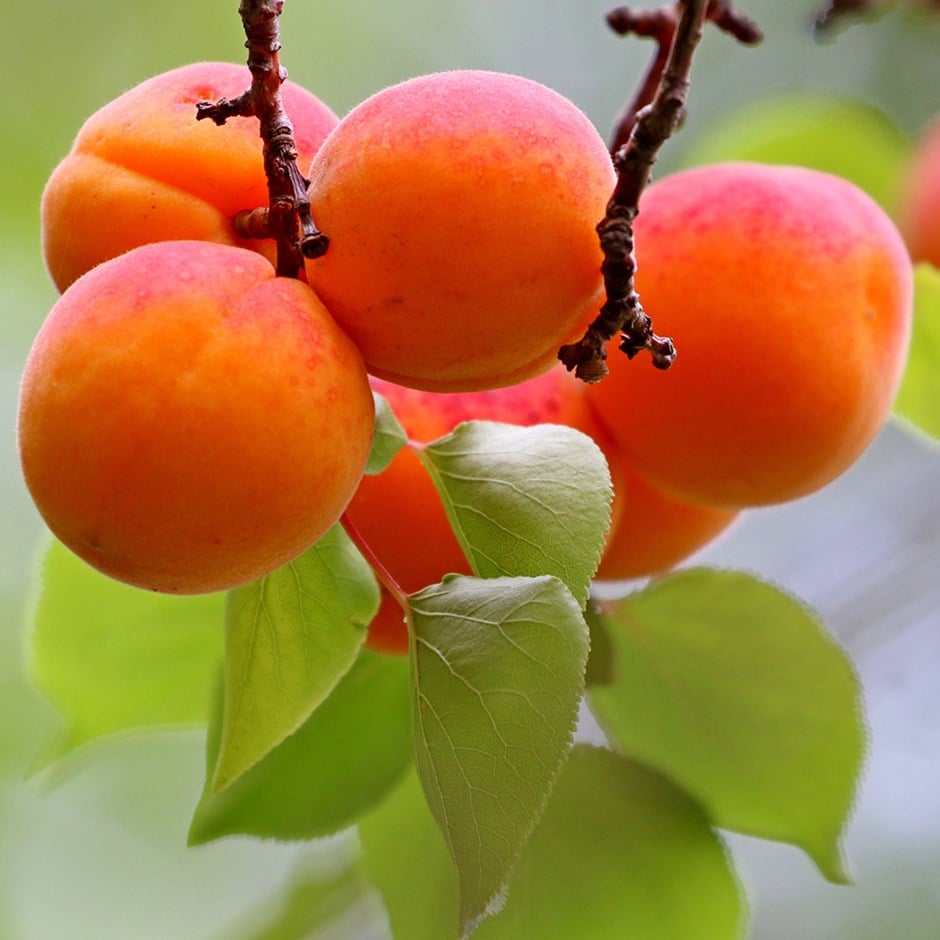apricot 'New Large Early'
apricot
- bare root | Myrobalan root stock | 1.2m
- £34.99
- available to order from autumn
Delivery options
- Standard £12.99
- Position: full sun
- Soil: moderately fertile, moist, well-drained soil
- Rate of growth: average
- Flowering period: April to May
- Hardiness: frost hardy (may need winter protection)
A robust and self-fertile variety, known for its tangy, pale yellow-skinned fruits that are a delight straight from the tree. This American plant is a hardy and reliable choice, particularly well-suited for UK conditions, and the apricots are bursting with juicy, flavour, surpassing store-bought varieties. Ideal for both fresh consumption and preserving in jams, 'Large Early' offers versatile culinary options. In early spring, the tree graces the garden with beautiful pink-tinged blossoms, attracting butterflies and birds. For optimal results, cultivate in a sunny, sheltered position, or consider a cool glass house in the most exposed northern areas of the UK to protect from severe or prolonged frost.
When planting your apricot, prepare a hole up to three times the diameter of its root system. Fork over the base of the pit in readiness, incorporating plenty of organic matter into the backfill and planting hole. Avoiding frozen and waterlogged soil, trees should be planted out as they arrive. If you've ordered a bare root tree, soak the roots in a bucket of water for half an hour prior to planting, or if this is not possible, they can be heeled in temporarily, covering their roots with soil, or potted up. In exposed positions, consider growing against or training on a sheltered, sunny wall, or stake firmly, keeping the base weed-free. Apply a balanced fertiliser in early spring to support growth and fruiting and provide regular watering during hot, dry spells. Protect blooms from late frost by covering the plant with a double layer of horticultural fleece, and prune in summer to reduce the risk of disease.
